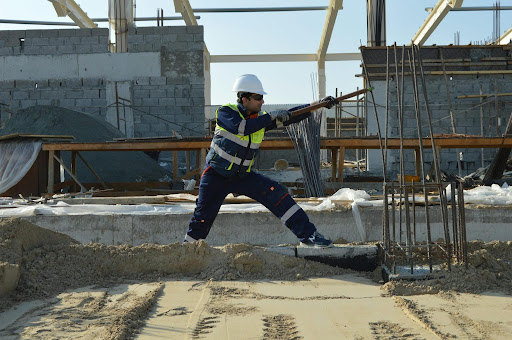Complicated building sites present several difficulties that call for careful design and implementation. The excavation process can be complicated by varied soil conditions, pre-existing infrastructure, and strict environmental laws, causing possible delays and higher expenses. Underground utilities complicate things much more and require sophisticated technology and knowledgeable staff to negotiate these challenges properly. Understanding the nuances of precision excavation becomes crucial to guarantee project efficiency and reduce hazards throughout the building process. By stressing precision and integrating creative technology, site preparation will be much improved, and a strong basis for good project results will be laid.
Understanding the challenges of complex construction sites
Complicated building sites offer a special set of difficulties that require strategic planning and careful thought. Variations in soil conditions, current infrastructure, and environmental laws can all complicate excavation operations and cause possible delays and higher expenses. In these situations, employing a vacuum excavator can be very successful since it guarantees the exact removal of soil and prevents damage to subterranean utilities. Navigating the complexity of the site and guaranteeing project efficiency and safety depend on this innovative technology and qualified workers. Minimising risk all through the building process depends on addressing these problems.
The importance of precision excavation in site preparation
Effective site preparation depends on accurate excavation since it shapes the basis of the whole building process. Ensuring the earth is dug to the proper depth and width helps install necessary infrastructure and reduces the possibility of future structural problems. While improving safety by lowering the possibility of unanticipated underground circumstances, precision in this step helps to save expensive rework and delays. Using cutting-edge tools and technologies can help building teams reach the degree of precision required to support challenging projects and satisfy regulatory criteria.
Advanced technologies and techniques for precision excavation
Advanced technologies greatly improve the accuracy and effectiveness of excavation techniques. Precision measurements and real-time data analysis, made possible by tools including GPS-guided gear and laser scanning devices, let operators make educated on-site decisions. Drone surveys and 3D models also offer thorough terrain imagery, which aids in the identification of any difficulties prior to excavation starting. These developments simplify processes and increase safety by reducing human error and guaranteeing that excavation is carried out within designated tolerances, producing better project results.
Case studies: successful applications of precision excavation solutions
Many projects have shown how well precision excavation techniques overcome site-specific difficulties. For a recent urban redevelopment project, for example, careful excavation around existing utilities was necessary, where the use of modern scanning technology allowed for accurate mapping and reduced disturbance. Another scenario included a major infrastructure project using GPS-guided tools to attain exact grading, therefore greatly lowering material waste and guaranteeing environmental compliance. These illustrations show how creative methods improve operational performance and help complete challenging building projects successfully.
Conclusion
In essence, negotiating the difficulties of complicated building sites calls for a dedication to accurate excavation and cutting-edge technologies. Construction teams can efficiently handle the complexities of varied soil conditions, existing infrastructure, and environmental requirements by prioritising site preparation and using creative tools, including GPS-guided machinery and 3D modelling. The effective case studies highlight the need for these approaches in lowering risks, controlling expenses, and improving general project efficiency. In the end, adopting precision excavation helps improve processes and provides a strong basis for the effective completion of challenging building projects.







